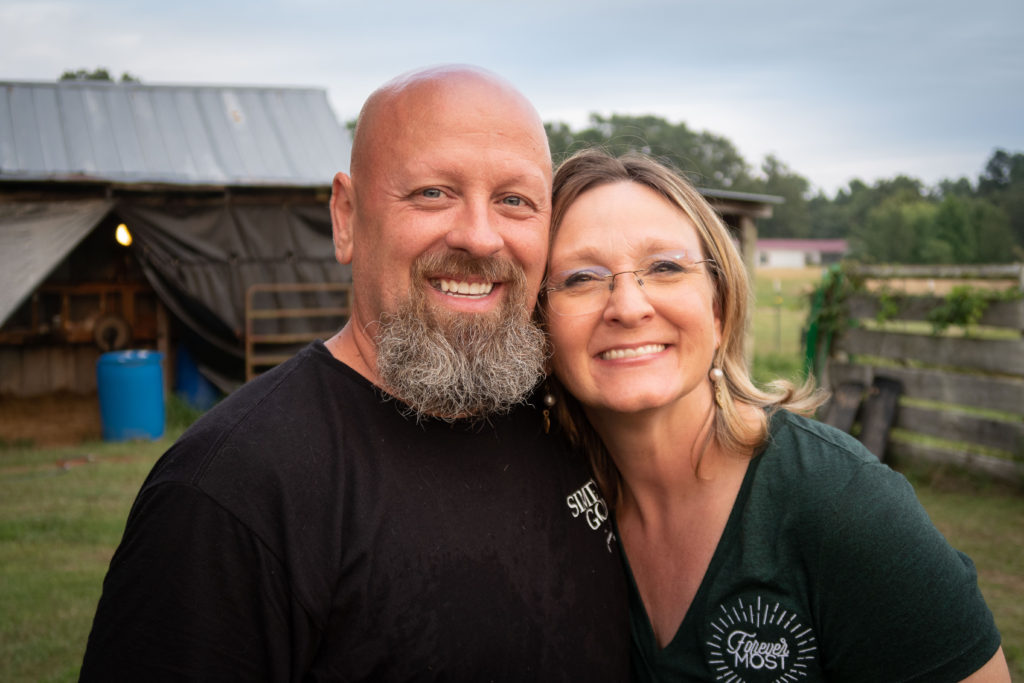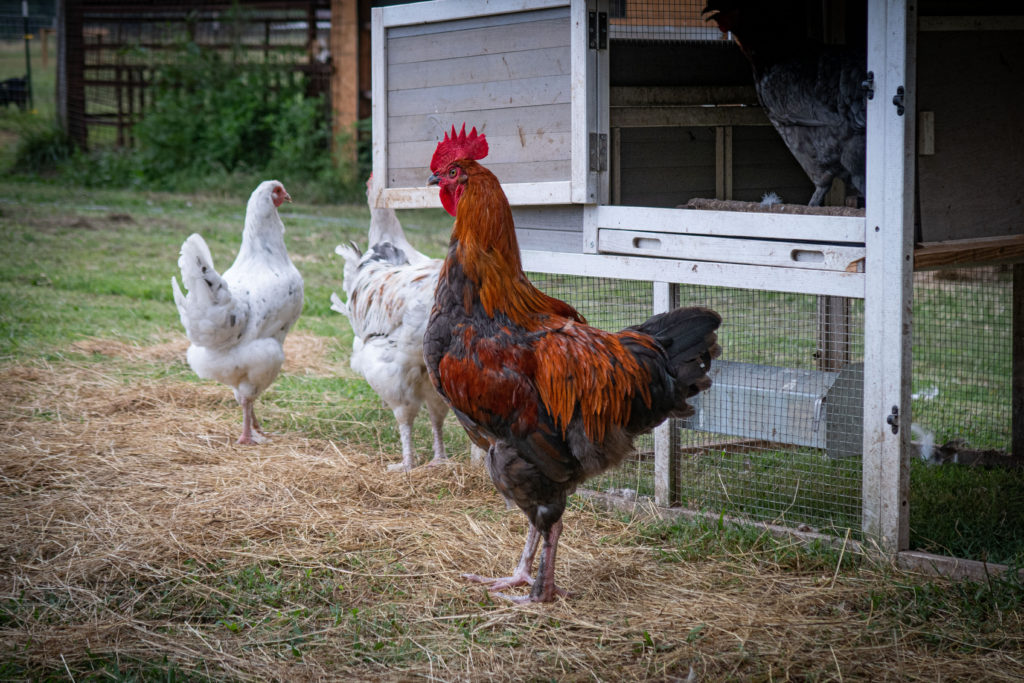Heterodox Academy Celebrates its Five Year Birthday
Earlier this evening, I attended the five year celebration of Heterodox Academy (HxA). The lineup of illustrious speakers included:
- Jonathan Haidt (Psychologist and Professor of Ethical Leadership at New York University Stern School of Business)
- Jeffrey Sachs (Political Scientist at Acadia University)
- Randall Kennedy (Harvard Law Professor)
- Nadine Strossen (Former President of the ACLU)
- Nicholas Christakis (Sociologist and Professor at Yale)
We see the following threats to Open Inquiry within the academy today:
Across the political spectrum, we see protest and backlash against scholars that threaten a preferred narrative.
Expanding bureaucracies at many colleges and universities subject ever more of campus life to administrative oversight — and encourage people to resolve disputes through reporting, investigations, and academic reprisals rather than good-faith debate and discussion.
Concerns about placating donors, ensuring high enrollments or positive course evaluations can distort research and pedagogy — especially for the growing numbers of contingent faculty whose careers and livelihoods can be threatened by a single upset student, donor or colleague. Contingent faculty are statistically more likely to be women, people of color, and other equity seeking groups whose numbers are underrepresented in tenure track positions.
Many fear losing the esteem of, or being ostracized by, one’s peers for saying the “wrong” thing. Even in the absence of formal sanctions, social and professional isolation can make academic life difficult — and many prefer to self-censor rather than risk it. This is a significant concern among students, faculty, and administrators: our 2019 Campus Expression Survey found that roughly half of students, regardless of their political ideology, agreed that the climate on their campus prevents people from saying things because others may find them offensive.
What does HXA propose as a solution to this problem?
To improve the quality of research and education in universities by increasing open inquiry, viewpoint diversity, and constructive disagreement. We aspire to create college classrooms and campuses that welcome diverse people with diverse viewpoints and that equip learners with the habits of heart and mind to engage that diversity in open inquiry and constructive disagreement.
We see an academy eager to welcome professors, students, and speakers who approach problems and questions from different points of view, explicitly valuing the role such diversity plays in advancing the pursuit of knowledge, discovery, growth, innovation, and the exposure of falsehoods.
Heterodox Academy (HxA) is a nonpartisan collaborative of thousands of professors, administrators, and students committed to enhancing the quality of research and education by promoting open inquiry, viewpoint diversity, and constructive disagreement in institutions of higher learning. All of our members embrace a set of norms and values, which we call “The HxA Way.”
All of HxA's members embrace the following statement:
I support open inquiry, viewpoint diversity, and constructive disagreement in research and education.
HXA proposes the "HxA Way" as the best way to support open inquiry. The four elements of the HxA Way are:
- Make your case with evidence.
- Be intellectually charitable.
- Be intellectually humble.
- Be constructive.
- Be yourself.
Who would have ever thought we would need an organization to help us learn how to talk to each other on important issues at colleges and universities? Well, we do. That's why I joined HxA tonight in my capacity as a law professor. I'm looking forward to getting increasingly involved in all the HxA does.
Note: There is some overlap in the concerns and missions of HxA and FIRE (Foundation for Individual Rights in Education). If you support one of these organizations, you will probably also support the mission of the other.
Rediscovering Connection at your Local Park
The Internet is an amazing tool that offers us easy ways to connect with each other with very little effort. This magic technology also allows social media sites to pummel us with videos of people bullying each other and physically fighting each other in public places. The triggering "excuses" for these flare-ups are countless. It's often about masks, but many of these videos focus on the bizarre propensity of many people have to divide others into political and “racial” tribes.
In some of these videos people violently assault each other. I recently viewed a video of two families arguing on a store parking lot. Somebody apparently accidentally bumped somebody else, then the situation quickly and needlessly escalated to the point where guns were drawn. I cringe when I see this insanity. A couple of these disheartening videos show up on my feeds every week, posted by people whose motives are often unclear. Some of these videos involve police officers but the great majority do not. Often, every one of the people featured in the video is ill-behaved. Other videos involve unprovoked violence, however, and many of those incidents culminate in physical injuries to an innocent person. Watching too many of these videos plants a false intuition that we are watching typical human beings doing typical things.
Is there a silver lining to these displays of anger and violence? Is it important to sometimes document our human frailties and cruelties? Should we occasionally hold some of these videos up like mirrors to force ourselves to acknowledge the risk that our anger can dangerously escalate into brutality? Can we use some of these videos as teachable moments, showing what can happen when we fail to show restraint and kindness?
Even if there is such a silver lining, it can’t be healthy to watch a steady stream of these videos showing so many people being so shitty to each other. It seems to me that too much exposure to these videos numbs us to the pain and suffering of others. At some point, our in-group tendencies can completely anesthetize our empathy for "the other." Once we cross that line where we no longer care about the pain of others, these videos serve mostly as conflict pornography. For years, Hollywood has been peddling gratuitous violence as entertainment. Movie and TV studios too often stoop to the lowest level of profitable "entertainment." The proliferation of smartphone camera social media videos suggests that there’s no longer any need for Hollywood to continue paying highly trained writers substantial money to concoct their stylized ballets of violence.
In this age of COVID-19, many people are feeling trapped in their homes. Many of us are also transfixed to our screens on which we exposed to far too many videos of people acting badly. Slouching on the couch to watch strangers being mean to each other can’t be harmless. Aren’t these videos causing permanent social damage? And aren’t there better things to do with one's time?
Almost every day, I walk through glorious Tower Grove Park, near my home in St. Louis. On almost every walk I see people from many different demographic and ethnic groups. They show up in the park with their own styles of clothing, music, food, games and language, even now as the weather is turning colder. It is an especially beautiful thing to behold the families at play, parents and their little children.
[More . . .]
They show up in the park with their own styles of clothing, music, food, games and language, even now as the weather is turning colder. It is an especially beautiful thing to behold the families at play, parents and their little children.
[More . . .]
Making Farming a Reality in Rose Bud, Arkansas
I met Steve Grappe ten years ago in St. Louis when I was attending a Lightroom course he was teaching. Back then, Steve was an excellent photographer who eventually became my photography mentor. He taught many other people too. He was the center of vibrant photography community. I quickly learned that Steve was an indefatigable man with an expansive skillset and nonstop creativity. A few years ago Steve left St. Louis to reconnect with Kelly, his prom date from many years earlier when they attended high school together in Arkansas. They were married in May 2018. He took a day gig as a car mechanic and she continued her job as a telecom executive. They settled down and lived happily ever after. The End.
Actually, that's not quite the end of the story. A few months later, they bought a dilapidated old farm in Rose Bud, Arkansas. It was actually much worse than dilapidated. I think Steve said he bought it for a bag of acorns. They worked around the clock to fix up the place and this took an enormous amount of sweat equity. Steve and Kelly were helped considerably in this project by Kelly's teenage daughter, Grace.
Steve and Kelly were still most definitely not farmers, but at about this same time they decided they needed to learn how to run a farm, so they attended one of the best farm schools available: Youtube. They also asked lots of questions and listened to others in the business. They jumped right in and brought in some livestock, including chickens, pigs, turkeys, rabbits and pigs. They named their special place "Forevermost Farms," a name based upon a syrupy romantic encounter that I don't have time for right now. All of that was such long time ago . . . To recap, Steve and Kelly got married all the way back in May of 2018. They then bought a run-down farm, turned it into a really cool place where some of the animals wear clothes and sometimes sing in little animal quartets. Steve and Kelly went to YouTube University in order to learn how to humanely and organically raise these eccentric critters. Their work has become their passion and I now realize that they were just getting started.
Fast forword: In the past couple weeks, Steve and Kelly said goodbye to their latest batch of 3,000 chickens that they raised over the past few months. They also recently said goodbye to 300 turkeys, 60 pigs and, if I'm remembering correctly, a partridge in a pear tree. Most recently, they announced that one of their dogs is pregnant, which will provide them with more dogs to help them raise their livestock. Things are always happening at Forevermost.
The above numbers boggle my mind, but I've visited Steve and Kelly and I've seen their beautiful place. I've seen many of their animals and I know that many of those animals have both personalities and names. Steve has also become an expert in the mating habits of their animals. He carefully (some would say voyeuristically) observes the animals to see who is doing what to whom. Beware. If you ask Steve a question about animal sex, he will speak to you much more directly than your parents ever did when they gave you the "sex talk."
As Forevermost Farms has become a reality, I've seen a special glow in the eyes of Steve and Kelly. They have accomplished something I would have thought impossible until I saw it with my own eyes, especially in that short time frame, and it was all done on a limited budget. But guess what? My two wonderful upbeat hard-working friends have now most definitely become farmers.
If you'd like to know more about the story of Forevermost Farms, you are invited to follow Steve and Kelly on Facebook or at the Forevermost Farms Website. Please do visit their website so that you can take in some of this celebration that has become their lives.
Heterodox Academy Offers Suggestions on How to Disagree Civilly
Heterodox Academy was founded in 2015 by Jonathan Haidt, Chris Martin, and Nicholas Rosenkranz
in reaction to their observations about the negative impact a lack of ideological diversity has had on the quality of research within their disciplines. What began as a website and a blog in September of 2015 — a venue for social researchers to talk about their work and the challenges facing their disciplines and institutions — soon grew into an international network of peers dedicated to advancing the values of constructive disagreement and viewpoint diversity as cornerstones of academic and intellectual life.
All members of Heterodox Academy embrace a set of norms and values that they call “The HxA Way.”
“I support open inquiry, viewpoint diversity, and constructive disagreement in research and education.”
HxA offers a tipsheet on how to how to approach moral disagreements in constructive ways. HxA encourages us to "engage in open inquiry and constructive disagreement can use these strategies to build mutual understanding and have better conversations on difficult issues."
I highly recommend visiting this entire article, but in this short article I'm setting out the basic ideas:
- Lower the perceived state of the disagreement or conflict
- Don’t sling pejorative labels or assign bad motives
- Agree upon facts first ("Then talk about what to do about it or how best to address it. Start small and build out.")
- Lower a disagreement’s visibility ("In public environments, including digital forums, there is much more pressure to conform to one’s group and to virtue signal. It is also far more embarrassing to admit you were wrong to the whole world than to a single person. People are generally much more reasonable in more intimate settings.")
- Don’t demand too much from the conversation ("In cases of deep disagreement, the initial and primary goal should be simply to clearly understand where the other is coming from and to be well-understood oneself.")
- Appeal to identity, values, narratives,and frames of reference
- Speak to people in their own language ("people become much more willing to reconsider or even change their views and to accept controversial facts when presented to them in terms of their own values, commitments, and frames of reference")
The final point of this HxA tip sheet is to "Understand that it’s worth the effort." HxA elaborates:
If you do a deep dive into a radically alternative worldview with an open mind – that mind will be blown. The exploration might, at times, be disorienting, frustrating, or triggering – but you will learn a lot. You might not abandon your own commitments, but you’ll definitely come to see things in a dramatically different way. At the very least, you will discover that your rivals have legitimate reasons for holding the positions they hold on many issues. That in itself – really internalizing that – can be huge.
HxA position is that they prize pluralism and value constructive disagreement. They offer these additional five bullet points for accomplishing these goals:
- Make your case with evidence.
- Be intellectually charitable ("However, one should always try to engage with the strongest form of a position one disagrees with (that is, ‘steel-man’ opponents rather than ‘straw-manning’ them). One should be able to describe their interlocutor’s position in a manner they would, themselves, agree with (see: ‘Ideological Turing Test’)")
- Be intellectually humble ("Take seriously the prospect that you may be wrong")
- Be constructive.("The objective of most intellectual exchanges should not be to “win,” but rather to have all parties come away from an encounter with a deeper understanding of our social, aesthetic and natural worlds.")
- Be yourself. This is a critically important point. Standing up to outgroups, in-groups and organizations sometimes takes considerable courage:
At Heterodox Academy, we believe that successfully changing unfortunate dynamics in any complex system or institution will require people to stand up — to leverage, and indeed stake, their social capital on holding the line, pushing back against adverse trends and leading by example. This not only has an immediate and local impact, it also helps spread awareness, provides models for others to follow and creates permission for others to stand up as well. This is why Heterodox Academy does not allow for anonymous membership; membership is a meaningful commitment precisely because it is public.
HxA offers many additional Tools and Resources for engaging in Heterodox Conversations. This is an excellent site to visit to prepare for conversations that might turn contentious.
- Go to the previous page
- 1
- …
- 22
- 23
- 24
- 25
- 26
- 27
- 28
- …
- 63
- Go to the next page




